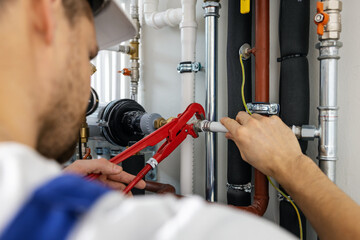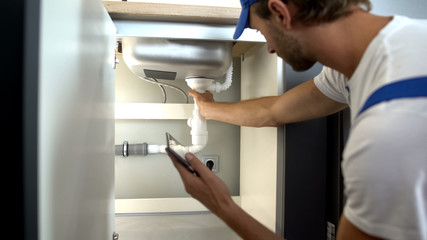Window Replacement Foxboro MA is all about finding a solution that perfectly aligns with your vision and home. This means avoiding compromises on style, materials, or options.

Ugly or damaged windows can lower a home’s value and energy efficiency. Drafty windows can cause rot, squeaks, and water damage. There are many signs that it’s time for window replacement.
There are a few factors that can impact the cost of window replacement. One of the most significant is the type of windows purchased. Certain types, such as bay or bow windows, are more intricate than standard windows and will therefore be more expensive. Other types, such as egress windows, may require a more extensive installation process, which can also increase the overall cost.
Another factor that can affect the cost of window replacement is whether or not homeowners choose to add any upgrades or customizations. Integrated grills, between-glass shades, and other added features can drive up the total price of a window replacement project. However, many window companies offer pricing flexibility and will allow for negotiation, which can significantly reduce the overall costs of a window replacement.
Other factors that can impact the cost of window replacement include the size and location of the windows being replaced, as well as any applicable taxes or fees. For example, if the windows are being installed in a new construction home, they will likely be taxed at a different rate than existing homes. Additionally, the cost of labor can vary from region to region.
Some signs that a homeowner should replace their windows include cold air leaking through the frame or glass, visible damage or rot to the frames or panes, and inoperable components. Other indicators include higher energy bills than normal, which can be caused by old and inefficient windows that don’t adequately insulate or block UV light.
The cost of window replacement can also be impacted by the style of home, as well as local building codes and historic district ordinances that may require certain types of windows to be used in a specific area. These factors can add up to a substantial bill, especially if a full-frame replacement is required.
Homeowners can reduce the cost of window replacement by purchasing several windows at once, as many manufacturers will provide discounts or offers for bulk orders. This can help offset the initial investment, and homeowners can also save on installation and removal costs by having them installed at the same time.
Materials
When replacing your windows, you’ll need to choose a frame material. The type of frame you pick will affect how the window performs in your climate and will impact your energy costs over time. There are several different materials available for window frames, including vinyl, aluminum, fiberglass, wood-clad, and composite frames. Each has its own advantages and disadvantages for your home, so it’s important to discuss them with a replacement window contractor before choosing the frame for your project.
Vinyl-frame windows are among the most popular choices for homeowners today. These windows are affordable and offer good insulation. They also come in a variety of styles to fit your home’s design aesthetic. However, these windows don’t hold up as well as aluminum or wood in high humidity.
Aluminum-frame windows are a durable option that offers slim sightlines for large glass areas. They’re also easy to maintain and are a cost-effective alternative to wooden or vinyl frames. But because aluminum conducts heat, it’s not as energy efficient as other window frame materials.
Fiberglass-frame windows are another option that’s growing in popularity. They’re strong and more energy efficient than vinyl, but less prone to expansion and contraction during extreme weather conditions. They also offer a wide range of color options, making them an attractive choice for many homes.
Lastly, wood-clad windows are a great choice for those who want the durability of aluminum or fiberglass but prefer the look of traditional wood. They’re also a good choice for historic homes and may be the only way to match certain architectural specifications. They’re made of wood on the inside and aluminum or fiberglass cladding on the outside, and they’re also available in a variety of color options.
The type of window you choose will have a huge impact on your home’s appearance and how it performs. The right frame will add to your home’s beauty while keeping you comfortable and saving money on energy bills. So take the time to choose a window that meets your needs and will last for decades. You’ll thank yourself when you see the difference in your utility bills over time!
Installation
The installation process of Window Replacement involves several steps. First, the installers remove the old windows from the frame and clean up the area around them. Then they install the new windows. Depending on the style of the window, they may use different techniques to install the frames and sills. Some windows require special techniques to prevent leaks and airflow problems. The installers will also make sure that the new windows are properly insulated.
During the process, it is important to cover furniture and to clear the area surrounding the windows. It is also important to wear eye protection and cut-resistant gloves. A good contractor will have drop cloths and a portable dust suppression system to keep the area clean. In addition, the contractor should test for lead paint and asbestos in the existing windows.
A permit is often required for window replacement projects because they involve structural changes in the home. In addition, local authorities enforce building codes to ensure that occupants are safe. For example, windows near doors or in bathrooms should have safety glazing to protect against falling glass.
In most cases, the new window should fit in the existing opening. The installers will inspect the frame for rot and other damage before installing the new window. They will also install a window stop to prevent the window from slipping out of the frame. The crew may also insulate the new window with an expanding foam to improve energy efficiency.
The new window is installed in the frame with mounting screws. Shims can be used to hold the window in place if it is not plumb or level. The installers will then caulk the edges of the window and trim and paint or stain them. The final step is to test the operation of the new window and make any necessary adjustments.
Window installation is a large job that requires careful planning and attention to detail. A high-quality installation will result in a long-lasting, comfortable living space. A professional installation company can provide the expertise and experience needed to complete the project quickly and efficiently. They will be able to advise you on the best types of windows for your home and explain the installation process. They will also be able to recommend any rebates or incentives that may be available.
Warranty
A window replacement warranty or condition is a set of terms that covers any issues that may arise after installation. Window manufacturers and contractors choose what they will cover in a warranty, so it is important to be clear on these terms before committing to a project. The best way to do this is to ask the company about their warranties, which should be provided in writing. These documents often contain many terms, conditions, and loopholes that must be understood, so it is wise to read them carefully.
It is also important to know what does and doesn’t qualify for coverage under a warranty. For example, many companies will exclude any labor that has not been provided by the manufacturer, as well as installation mistakes. Additionally, some warranties have a limited lifetime, meaning they will only cover the windows for as long as the homeowner owns the home. This can be a major issue, as it means the window must be replaced again when the homeowner sells the house.
The type of window you choose can also influence the warranty you receive. Some products come with a double lifetime warranty, which means the windows will be covered for as long as the home is owned by the owner or his or her immediate transferee. This is a great option for homeowners who want to add value to their home and increase its marketability when they are ready to sell it.
While it is common to see a window company offering a lifetime warranty, you should be aware that this term does not have a legal definition. In fact, it could mean anything from the lifetime of the manufacturer to the lifetime of the product. This can cause confusion, as it can be difficult to distinguish between different warranties that offer the same coverage.
It is also important to look for a warranty that offers coverage on all aspects of window replacement, including hardware, installation, and labor. Some warranties will even cover glass breakage up to a certain amount of money. It is also important to find out how long it will take for the window company to respond to any warranty claims and whether they are able to provide a replacement part if necessary.





